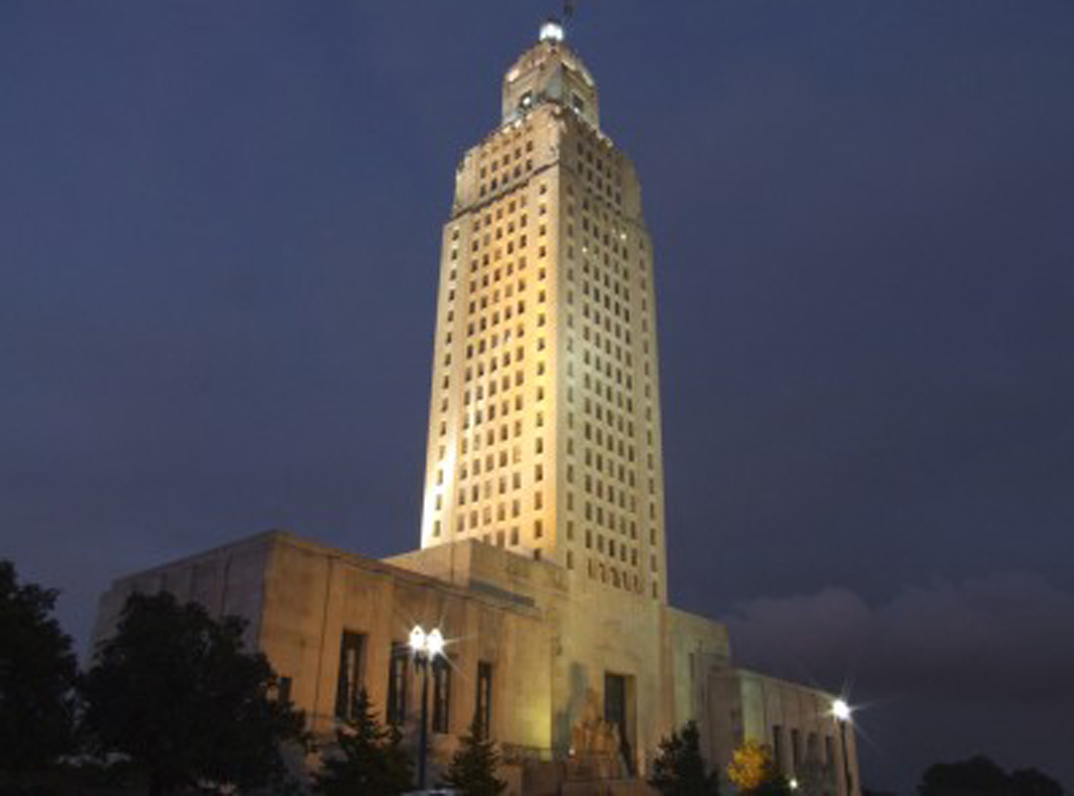By James Smith and Lauren Heffker
LSU Manship School News Service
BATON ROUGE — A Senate committee advanced a bill Wednesday that would allow patients to inhale cannabis for medicinal purposes and would no longer require that prescribing physicians live in the state.
The proposal, sponsored by Rep. Ted James, D-Baton Rouge, is among several bills looking to update the state’s cannabis laws this session.
The inhalation bill would loosen the laws under which physicians could recommend the use of medical marijuana for patients diagnosed with debilitating medical conditions.
Present law permits patients to consume medical marijuana through edibles, oils and extracts. The proposed bill would allow patients to inhale cannabis through inhaler-like devices. Prescribing doctors would also no longer have to reside in Louisiana, although they would still need to be licensed by the state.
The Louisiana Board of Pharmacy would regulate the development and distribution of inhalation products.
In 2015, the legislature passed the Alison Neustrom Act, which opened the door for medicinal marijuana and cannabis research in Louisiana.
LSU’s AgCenter partnered with GB Sciences Louisiana to research how marijuana oils and hemp plants can treat epilepsy. The center received its first $500,000 research investment grant in April.
But an ongoing dispute between the LSU AgCenter and the state’s agricultural department has hindered distribution of medical marijuana to patients.
The inhalation bill passed the House floor with a nearly unanimous vote. It now moves to the Senate floor for final passage.
The approval comes one day after the Senate Agriculture Committee advanced a controversial bill with a 5-2 vote that would legalize the growth of hemp in Louisiana. The proposal was heavily amended in a lengthy debate and would impose tight restrictions on the cultivation of hemp.
Hemp and marijuana come from the same plant species, but hemp contains nearly no TCH or psychoactive properties. Hemp is the fiber of the cannabis plant, and is a multi-use material that can be used to make rope, fabric and paper products.
Gov. John Bel Edwards, a Democrat running for re-election in the fall, has said he is supportive of hemp regulation in Louisiana.
The hemp bill would also allow for the sale of CBD products, which has remained in a legal grey area. The Louisiana Board of Pharmacy has issued notices to vendors stating that CBD is illegal, but have not taken steps to enforce the claim.
CBD is derived from hemp, and is used to manage pain, anxiety and even epilepsy. CBD retailers have opened in cities like Lafayette, New Orleans and Mandeville.
Some legislators are also trying to legalize recreational marijuana, but odds remain if the Republican-controlled legislature will advance these efforts.
Mississippi technically legalized medical marijuana in 2014, but access has been restricted due to a conservative legislature and conflicting state and federal laws. A bill seeking to expand access died in their Senate in February.
Legislators in Texas are working to expand the state’s 2015 medical marijuana program to include patients suffering from multiple sclerosis, epilepsy, and spasticity.
A bill sponsored by Rep. Edmond Jordan, D-Baton Rouge, and co-sponsored by James, would regulate the growth and sale of recreational marijuana.
The proposal would authorize the Louisiana Department of Agriculture and Forestry to issue 15 industrial marijuana growing permits. Those facilities would adhere to strict guidelines and sellers would only be able to sell to individuals 21 and older. Louisiana could generate $240 million in marijuana revenue, which would be reinvested in the state, Jordan said.
The bill was reassigned to the House Committee on Administration of Criminal Justice from the House Judiciary Committee last week.
The New Orleans City Council decriminalized simple possession of marijuana in 2016. The ordinance does not legalize recreational marijuana, but lessens the penalty for possession to a citation, rather than an arrest.

